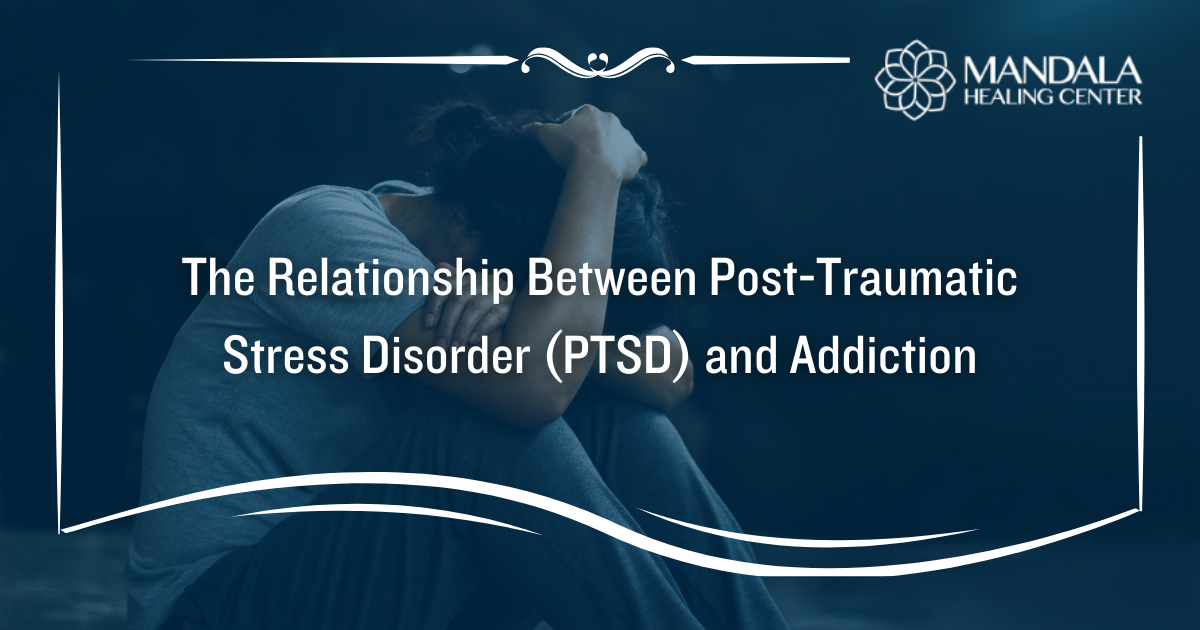Almost everyone has experienced a traumatic event. Trauma is characterized as the lasting emotional effects a person has after experiencing a distressing event. Suffering from trauma can affect your sense of safety, sense of self, and ability to regulate emotions.
According to the National Council for Mental Wellbeing, 70% of adults in the U.S. have experienced some type of traumatic event at least once in their lives.[1]
Post-traumatic stress disorder (PTSD) is a mental health condition that stems from experiencing a traumatic event. It is important to note that not everyone who suffers from trauma develops this disorder. The U.S. Department of Veteran Affairs reports that 6 out of every 100 people will experience PTSD at some point in their lives.[2]
When someone suffers from PTSD, they will experience a wide array of symptoms that make it difficult to function in their daily life. Some of these symptoms may include severe mood swings, flashbacks, nightmares, and a general distrust of others. Dealing with these symptoms sometimes leads people to begin self-medicating with drugs and alcohol, so trauma and substance abuse are closely related.
Because post-traumatic stress disorder (PTSD) and addiction often co-occur, understanding the relationship between these two conditions and how they are treated is important.
The Symptoms of Post-Traumatic Stress Disorder (PTSD)
While most people who experience a traumatic event temporarily struggle to cope with the emotional aftermath, they tend to recover over time. Unfortunately, some individuals continue to struggle with symptoms, indicating they have developed post-traumatic stress disorder.
The common signs and symptoms of PTSD include:[3]
- Recurring and unwanted memories of the event
- Experiencing flashbacks
- Upsetting nightmares about the event
- Severe emotional reactions to reminders of the event
- Avoiding people, places, or things that remind you of the trauma
- Negative thoughts about yourself, others, or the world in general
- Feelings of hopelessness
- Difficulty maintaining close relationships
- Feeling emotionally numb
- Being easily startled or feeling on edge
- Issues with concentrating and sleeping
- Overwhelming feelings of guilt or shame
- Suicidal thoughts
When PTSD is left untreated, the symptoms can worsen over time. If you or a loved one are experiencing the symptoms of this condition, you must seek professional trauma therapy. The main goal of PTSD treatment is to address your past traumas and overcome the severe emotional reactions to the events.
How are Post-Traumatic Stress Disorder (PTSD) and Addiction Connected?
When you experience something traumatic, your brain’s chemical balance is impacted, causing it to release fewer endorphins.[3] Endorphins are chemicals in your brain that are responsible for feelings of happiness. Someone with PTSD may begin to abuse drugs or alcohol in an attempt to numb their depressed mood.
Unfortunately, while drugs and alcohol can temporarily improve your mood, abusing these drugs long-term can worsen the symptoms of PTSD over time. Additionally, regular abuse of substances leads to the development of addiction. Experiencing co-occurring post-traumatic stress disorder and addiction can be extremely difficult and even dangerous, due to the risk of suicidal thoughts and overdoses.
Studies show that up to 46.4% of people with PTSD also met the criteria for a substance use disorder, meaning nearly half of the people suffering from post-traumatic stress disorder also struggle with substance abuse and addiction.[4]
The Signs of Addiction
If you are worried that your loved one has developed an addiction due to self-medicating their symptoms of PTSD, knowing the signs of substance abuse can help you determine the next steps.
To understand the signs of addiction, you should become familiar with the diagnostic criteria of substance use disorders defined by the DSM-5. These criteria include:[5]
- Using more of a substance than intended or for longer than you intended to
- Being unable to cut down or stop using the substance
- Experiencing intense cravings or urges to abuse the substance
- Needing more of the substance to experience a desired effect (tolerance)
- Experiencing withdrawal symptoms when you cannot use the substance
- Spending a lot of time thinking about, obtaining, using, and recovering from the effects of a substance
- Neglecting responsibilities at work, school, or home as a result of substance abuse
- Continuing to use the substance despite facing relationship problems
- Giving up previously enjoyed hobbies to abuse the substance
- Using the substance in risky situations that put you in danger
- Continuing to use the drug despite facing physical and mental health consequences
If you or a loved one meet the criteria for a substance use disorder and suffer from PTSD, professional dual diagnosis treatment is necessary. Dual diagnosis treatment centers facilitate evidence-based treatments for both PTSD and addiction, helping clients achieve a healthy and happy life.
Find Help for Post-Traumatic Stress Disorder (PTSD) and Addiction Today
Dealing with untreated PTSD and addiction can seriously affect your physical and mental health. Both of these conditions put you at an increased risk of life-threatening emergencies, such as suicidal ideation and overdoses, but dual-diagnosis treatment addiction programs like Mandala Healing Center can provide you with the support and tools you need to recover from both conditions.
To learn more about receiving compassionate treatment for post-traumatic stress disorder and addiction, contact Mandala Healing Center today.
References:
- https://www.thenationalcouncil.org/wp-content/uploads/2022/08/Trauma-infographic.pdf
- https://www.ptsd.va.gov/understand/common/common_adults.asp
- https://www.ncbi.nlm.nih.gov/pmc/articles/PMC6760386/
- https://www.ncbi.nlm.nih.gov/pmc/articles/PMC3051041/
- https://www.ncbi.nlm.nih.gov/pmc/articles/PMC3767415/












